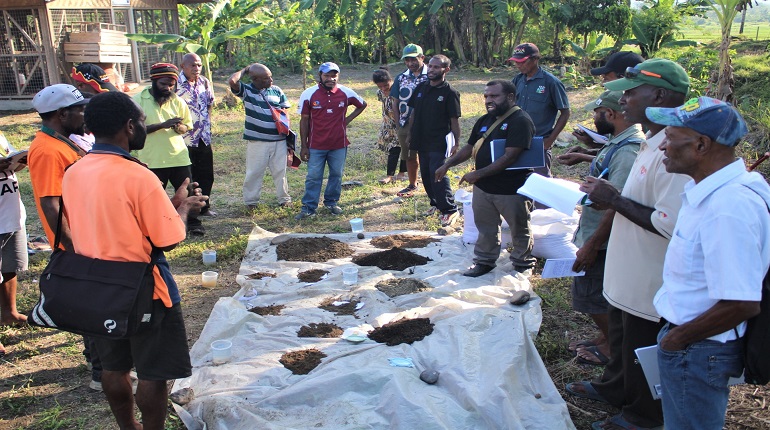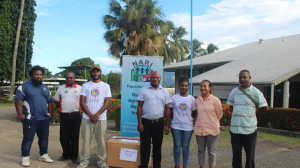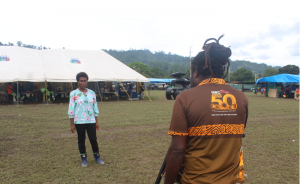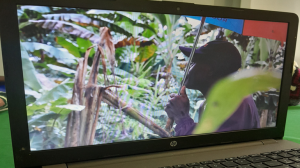A week-long training of trainers’ workshop was run from 14 to 18 February, with support from the European Union.
The workshop focused on basic aspects of natural resource (soil and water) management, crops farming,
livestock husbandry, and food processing for 30 participants from the Momase and New Guinea Islands regions.
Among them were 10 female lead farmers. Three representatives from participating provinces or districts were divided into three groups. One group under crops, the other joined livestock and the last group with food processing.
They had a combined session on natural resource management on the first day. Designated NARI staff facilitated the sessions on analysis of soil types then preceded to covering aspects of climate smart farming practices and rice farming.
The livestock training started with village chicken and then ventured to basics of feed production, in-land fishery and husbandry practices for pigs and sheep. Food processing focused on staple food crops to improve food security, nutrition and income earning opportunities.
At the end of the week, participants were presented with certificates and resource kits comprising of training manuals, food processing tools, and seed materials.
They were challenged to share the knowledge and skills gained by the project team leader Jeffrey Waki.
“You are agents of change. It will not be easy to change your communities, as you must first allow your own mindset and farming practices to shift. The insights gained in this workshop should help you to do that”.
Ruben Zumbui, head of the newly established CBO Storm Gate Ministry, from East Sepik, spoke on behalf of the participants.
He expressed gratitude for the training and encouraged fellow participants to put to good use what they have gained. “The onus is on us to apply what we have gained to improve farming practices and level of resilience of rural farming communities against negative climate change impacts”.




